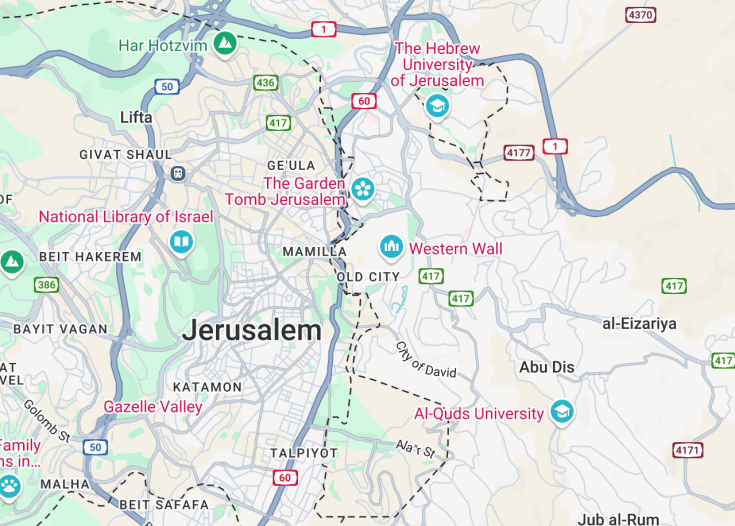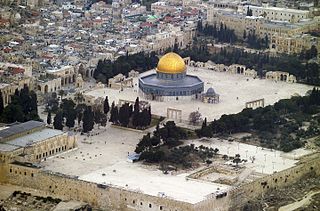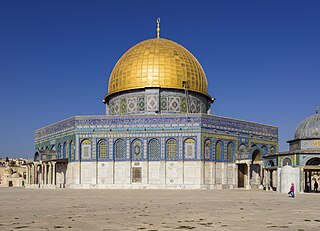Jerusalem, a city steeped in ancient history and spirituality, serves as a pivotal juncture of faith for Christians, Jews, and Muslims. Its old city brimming with iconic religious sites, like the Western Wall, the Church of the Holy Sepulchre, and the Dome of the Rock, invites visitors into its millennia-old alleyways lined with vibrant marketplaces and historic sites. Each turn promises a deep immersion into traditions that have shaped world cultures, making Jerusalem not just a city, but a transcendent journey across time.
Before visiting Jerusalem, consider timing your visit to avoid major religious holidays, as the city becomes particularly crowded, enriching the experience but also complicating travel and accommodation.
Pack modest attire to respect local customs and gain access to the myriad of sacred sites throughout the city, where dress codes are often strictly enforced.
Top things to do & see in Jerusalem (Palestine)
Select the following sights and activities to discover best tickets and tours available in Jerusalem (Palestine).
Jerusalem (Palestine): A City Steeped in History and Diversity
| Country | Palestine |
| Time in Jerusalem (Palestine) | GMT+2 |
| Language spoken | Arabic |
| Population | Approximately 936,425 (source: latest census) |
| Currency | New Israeli Shekel (₪, ILS) |
| Airports |
|
Jerusalem, a city located in the heart of Palestine, is one rich with history, conflict, and immense cultural heritage. Known to be among the oldest cities in the world, Jerusalem carries profound religious significance for Judaism, Islam, and Christianity alike. This city, encapsulating a mix of ancient artifacts and bustling modern life, attracts millions of pilgrims and tourists every year who come to witness its unique historical landscape and vibrant cultural tapestry. Beyond its spiritual allure, Jerusalem is also the hub of Palestinian governance and administration, albeit under heavy Israeli influence and control. The city’s complex political status remains a crucial element in the broader Israeli-Palestinian conflict, often making global headlines due to its contentious issues. Pockets of modernity surface in the form of lively markets, sophisticated restaurants, and burgeoning tech startups, juxtaposing its rich, prolonged history marked by diverse rulers and epochs. Today, the city’s architecture is a visible testament to its layered history, with ancient walls and ruins harmoniously coexisting with modern structures. The Old City, divided into Armenian, Christian, Jewish, and Muslim Quarters, each tells its own story, all against the backdrop of the iconic Jerusalem skyline marked by the contours of the Dome of the Rock and the ancient Western Wall. The social fabric of Jerusalem is notably diverse, with a population split among various ethnic and religious groups, each maintaining their cultural traditions and languages. Hence, the city not only serves as a focal point of faith but also as a living museum of human civilization, showcasing resilience and coexistence amidst its complex socio-political landscape.
Where is Jerusalem (Palestine)?
Jerusalem is centrally located west of the Dead Sea and east of Tel Aviv, in the Judean Mountains in Palestine.
Distances:
| Route | Distance by car | Time by car |
|---|---|---|
| From Tel Aviv to Jerusalem | 44 miles / 71 km | 50 minutes |
| From Haifa to Jerusalem | 95 miles / 153 km | 1 hour 50 minutes |
What is Jerusalem (Palestine) famous for?
The city of Jerusalem is renowned as a cradle of major Abrahamic religions — hosting sacred sites like the Western Wall, the Church of the Holy Sepulchre, and the Al-Aqsa Mosque. Its rich religious, historical, and cultural heritage invites exploration and reverence from visitors worldwide.
History
Prehistory to 1000 BCE: Ancient Beginnings
The history of Jerusalem begins in deep antiquity, with archaeological evidence suggesting the area was inhabited as far back as the 4th millennium BCE. Initially a Canaanite city, it is mentioned in ancient Egyptian texts from the 19th century BCE, indicating a long-standing significance in the region.
1000 BCE – 586 BCE: The First Temple Period
The most definitive chapter in Jerusalem’s early history starts with its establishment as the capital of the united Kingdom of Israel by King David around 1000 BCE, and the subsequent construction of the First Temple by his son, Solomon. This period signifies the city’s emergence as a religious and political center, deeply revered in Judaism.
586 BCE – 638 CE: From Babylonian to Byzantine Rule
Following the Babylonian conquest in 586 BCE, Jerusalem saw a series of ruling powers, including the Persians and the Greeks, leading into the Roman era starting from 63 BCE. The city’s significance continued under Roman rule and into the Byzantine period, despite multiple sieges and destructions, including the complete devastation in 70 CE when the Second Temple was destroyed.
638 CE – 1517 CE: Islamic and Crusader Periods
The year 638 CE marked the beginning of Islamic control with Caliph Omar’s conquest. Jerusalem became a focal point for Islamic pilgrimage, especially after the construction of the Al-Aqsa Mosque and the Dome of the Rock in the 7th century. The city also endured the tumultuous Crusades between the 11th and 13th centuries, oscillating between Christian and Muslim rule.
1517 CE – Present: Ottoman Rule to Modern Day
Ottoman rule from 1517 till the end of World War I introduced relative stability. Post World War I, the British Mandate period reshaped the city before the complex geopolitical and religious dynamics of the Israeli-Palestinian conflict post-1948 framed its more contemporary issues. Today, Jerusalem stands as a central piece in the enduring conflict, embodying layers of religious, historical, and cultural significance that stretch back thousands of years.
Visit Jerusalem (Palestine)
What to see and do in Jerusalem (Palestine), Palestine
Jerusalem offers a profoundly rich tapestry of history and culture. Key sights include the iconic Old City, a UNESCO World Heritage site, enveloped by impressive ancient walls and home to important religious sites like the Western Wall, the Church of the Holy Sepulchre, and the Dome of the Rock. The city’s museums, like the Israel Museum and Yad Vashem, offer insights into the nation’s history and the Holocaust, respectively.
- Explore the vibrant local markets such as Mahane Yehuda.
- Walk the historic walls of the city for panoramic views.
- Visit the Mount of Olives for its religious sites and olive groves.
Annual Cultural and Religious Festivities
Jerusalem hosts numerous events throughout the year, reflecting its diverse cultural and religious heritage. Notable are the Jerusalem Film Festival in July and the Feast of Tabernacles in September-October, along with Easter and Passover celebrations which transform the city with their solemn and joyous observances.
Best time to visit Jerusalem (Palestine)
The best times to visit Jerusalem are during spring (April and May) and autumn (September to November). These months offer pleasant weather, avoiding the extreme heat of summer and the chilly, rainy days of winter.
Is Jerusalem (Palestine) worth visiting?
Jerusalem, with its concatennation of historical and spiritual layers, is undeniably worth visiting. The city offers a unique glimpse into the past and a vibrant living culture. However, travelers should be mindful of the potential for political tension and ensure they stay informed about regional developments. Balancing its profound historical significance with the complexities of modern geopolitical issues, Jerusalem offers a compelling, though occasionally challenging, destination.
What are some recommended local dishes to try in Jerusalem?
- Hummus: A smooth paste made from chickpeas, tahini, lemon, and garlic, often topped with olive oil and spices.
- Falafel: Deep-fried balls made from ground chickpeas or fava beans, usually served in a pita with salads and tahini sauce.
- Shakshuka: A dish of eggs poached in a sauce of tomatoes, chili peppers, and onions, often spiced with cumin.
- Meorav Yerushalmi: A Jerusalem mixed grill of chicken hearts, spleens, and liver cooked with onions and spices.
- Knafeh: A sweet cheese pastry soaked in sugar syrup, often topped with pistachios and served warm.
- Bourekas: Flaky pastries filled with cheese, mushrooms, potatoes, or spinach.
These dishes offer a taste of local flavors that are deeply intertwined with the city’s history and cultural mosaic.
What are the best neighborhoods to explore in Jerusalem?
- The Old City: Divided into Christian, Muslim, Jewish, and Armenian quarters, this area is rich in history and cultural landmarks.
- Yemin Moshe: Known for its charming stone houses and narrow, winding paths. This neighborhood offers picturesque views of the Old City walls.
- Nachlaot: A cluster of over 30 small neighborhoods known for their mix of Sephardic and Ashkenazi cultures, and beautiful, historic synagogues.
- German Colony: A trendy area with a blend of old-world charm and modern cafés and shops. The main street, Emek Refaim, is lined with restaurants and boutiques.
- Talbieh: Known for its quiet, leafy streets and luxury homes, this neighborhood is also home to several foreign consulates and cultural institutions.
Exploring these neighborhoods provides a deeper insight into the life and diversity of Jerusalem.
Where can I find traditional crafts and souvenirs in Jerusalem?
- The Old City Market (Souk): Here, you’ll find everything from handmade jewelry and ceramics to embroidered textiles and olive wood carvings.
- Bezalel Street Arts Fair: Held every Friday, this market features local artists and craftsmen selling unique art pieces, jewelry, and home decorations.
- Yad LaKashish: A unique nonprofit empowering senior citizens by providing them opportunities to produce a variety of crafts, including metalwork, silk painting, and bookbinding.
- Armenian Pottery Shops: Located primarily in the Armenian Quarter, these shops offer beautifully hand-painted ceramics known for their distinctive styles.
These locations not only provide a chance to purchase authentic souvenirs but also support local artisans and cultural heritage.
What are some unique cultural experiences to have in Jerusalem?
- Walking Tours in the Old City: Explore the historical and spiritual significance of this ancient city guided by knowledgeable locals.
- Visit the Yad Vashem Holocaust Memorial: An essential experience, offering deep insight into Jewish history during the Second World War.
- Attend a Kabbalat Shabbat at the Western Wall: Experience the welcoming of the Sabbath with hundreds of people from various backgrounds.
- Sufi Dance Performances: Witness traditional Sufi dances which are a form of spiritual practice for many Muslim communities.
- Cooking Classes: Join a class to learn how to prepare traditional Middle Eastern dishes with local chefs.
These experiences not only enrich your travel but also provide a deeper understanding of the diverse cultural fabric of Jerusalem.
What are the best times of year to visit Jerusalem?
How can I respect local traditions while visiting Jerusalem?
- Dress Modestly: Particularly when visiting religious sites. Covering knees and shoulders is expected in many places.
- Observe Quiet: Especially around religious buildings and during prayer times to show respect to those who are worshiping.
- Learn Basic Phrases: Knowing simple greetings in Hebrew and Arabic can go a long way in showing respect to the locals.
- Understand and Respect Local Laws: This includes restrictions on public behavior, photography, and other specific local regulations.
Being mindful of these aspects helps promote a respectful and enriching experience for both visitors and local residents.
Can you recommend any family-friendly activities in Jerusalem?
- Time Elevator: An entertaining and educational ride that takes visitors through key events in Jerusalem’s history.
- Biblical Zoo: Home to a diverse range of animals, the zoo is especially focused on species mentioned in the Bible, offering educational and fun visits for children.
- Jerusalem Botanical Gardens: With its wide paths and thematic gardens, it’s a perfect place for a family day out in nature.
- Tisch Family Zoological Gardens: The zoo encapsulates a way for kids to learn about conservation while observing animals in well-maintained habitats.
- Interactive Workshops at the Tower of David Museum: These workshops provide hands-on activities ranging from ancient crafts to modern-day technology explorations.
These activities provide enjoyable learning experiences while allowing families to explore the rich history and nature of Jerusalem.












